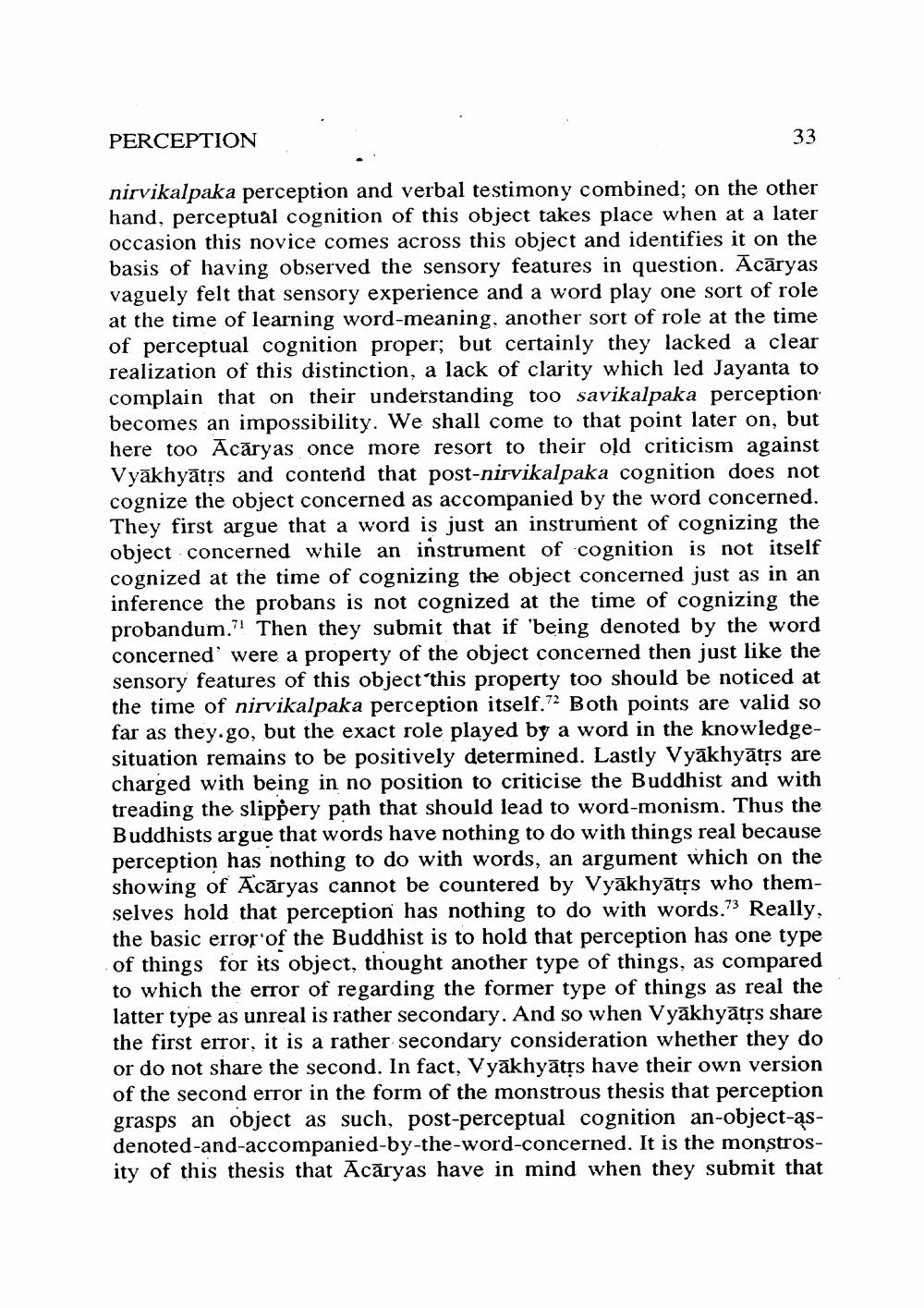________________
PERCEPTION
33
nirvikalpaka perception and verbal testimony combined; on the other hand, perceptual cognition of this object takes place when at a later occasion this novice comes across this object and identifies it on the basis of having observed the sensory features in question. Acāryas vaguely felt that sensory experience and a word play one sort of role at the time of learning word-meaning, another sort of role at the time of perceptual cognition proper; but certainly they lacked a clear realization of this distinction, a lack of clarity which led Jayanta to complain that on their understanding too savikalpaka perception becomes an impossibility. We shall come to that point later on, but here too Acāryas once more resort to their old criticism against Vyākhyātrs and contenid that post-nirvikalpaka cognition does not cognize the object concerned as accompanied by the word concerned. They first argue that a word is just an instrument of cognizing the object concerned while an instrument of cognition is not itself cognized at the time of cognizing the object concerned just as in an inference the probans is not cognized at the time of cognizing the probandum.?! Then they submit that if being denoted by the word concerned' were a property of the object concerned then just like the sensory features of this object this property too should be noticed at the time of nirvikalpaka perception itself.72 Both points are valid so far as they.go, but the exact role played by a word in the knowledgesituation remains to be positively determined. Lastly Vyākhyātrs are charged with being in no position to criticise the Buddhist and with treading the slippery path that should lead to word-monism. Thus the Buddhists argue that words have nothing to do with things real because perception has nothing to do with words, an argument which on the showing of Acāryas cannot be countered by Vyākhyātrs who themselves hold that perception has nothing to do with words.73 Really, the basic error of the Buddhist is to hold that perception has one type of things for its object, thought another type of things, as compared to which the error of regarding the former type of things as real the latter type as unreal is rather secondary. And so when Vyākhyātrs share the first error, it is a rather secondary consideration whether they do or do not share the second. In fact, Vyākhyātrs have their own version of the second error in the form of the monstrous thesis that perception grasps an object as such, post-perceptual cognition an-object-asdenoted-and-accompanied-by-the-word-concerned. It is the monstrosity of this thesis that Acāryas have in mind when they submit that




